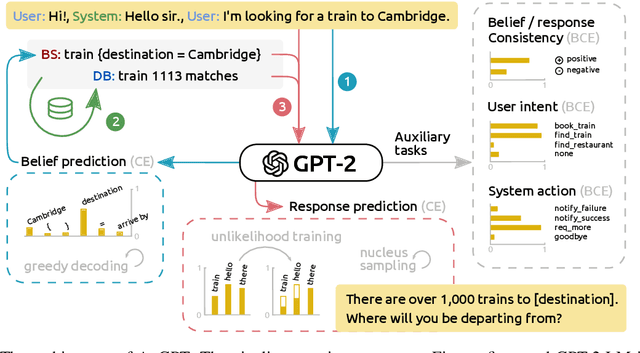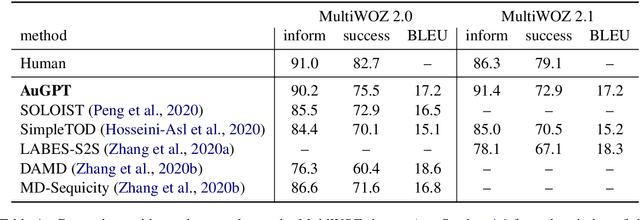AuGPT: Dialogue with Pre-trained Language Models and Data Augmentation
Paper and Code
Feb 09, 2021



Attention-based pre-trained language models such as GPT-2 brought considerable progress to end-to-end dialogue modelling. However, they also present considerable risks for task-oriented dialogue, such as lack of knowledge grounding or diversity. To address these issues, we introduce modified training objectives for language model finetuning, and we employ massive data augmentation via back-translation to increase the diversity of the training data. We further examine the possibilities of combining data from multiples sources to improve performance on the target dataset. We carefully evaluate our contributions with both human and automatic methods. Our model achieves state-of-the-art performance on the MultiWOZ data and shows competitive performance in human evaluation.
 Add to Chrome
Add to Chrome Add to Firefox
Add to Firefox Add to Edge
Add to Edge